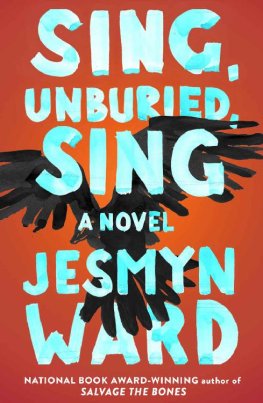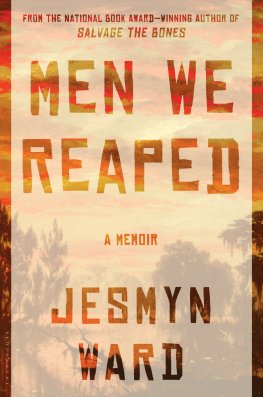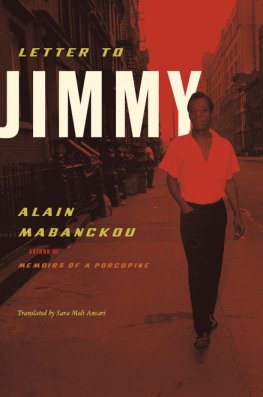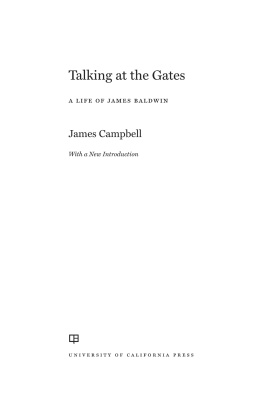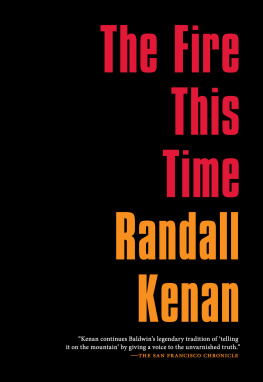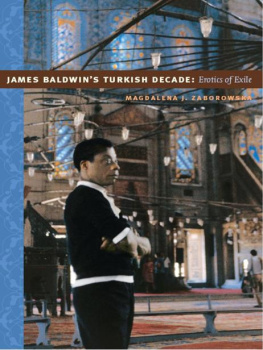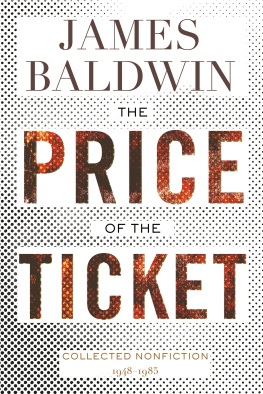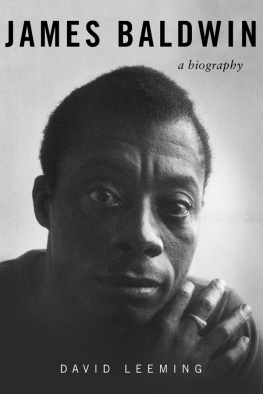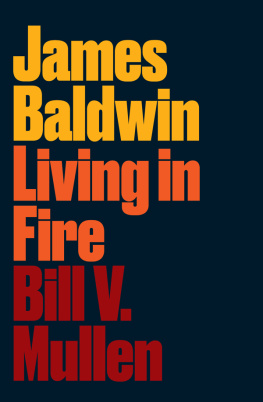To Trayvon Martin and the many other black men, women, and children who have died and been denied justice for these last four hundred years
Also by Jesmyn Ward
Men We Reaped: A Memoir
Salvage the Bones: A Novel
Where the Line Bleeds: A Novel

SCRIBNER
An Imprint of Simon & Schuster, Inc.
1230 Avenue of the Americas
New York, NY 10020
www.SimonandSchuster.com
Compilation and Introduction copyright 2016 by Jesmyn Ward
All rights reserved, including the right to reproduce this book or portions thereof in any form whatsoever. For information address Scribner Subsidiary Rights Department, 1230 Avenue of the Americas, New York, NY 10020.
First Scribner hardcover edition August 2016
SCRIBNER and design are registered trademarks of The Gale Group, Inc., used under license by Simon & Schuster, Inc., the publisher of this work.
For information about special discounts for bulk purchases, please contact Simon & Schuster Special Sales at 1-866-506-1949 or .
The Simon & Schuster Speakers Bureau can bring authors to your live event. For more information or to book an event contact the Simon & Schuster Speakers Bureau at 1-866-248-3049 or visit our website at www.simonspeakers.com.
Interior design by Erich Hobbing
Jacket design by Na Kim
ISBN 978-1-5011-2634-5
ISBN 978-1-5011-2636-9 (ebook)
Copyright notices continued on .
Contents
The Tradition
JERICHO BROWN
Aster. Nasturtium. Delphinium. We thought
Fingers in dirt meant it was our dirt, learning
Names in heat, in elements classical
Philosophers said could change us. Star Gazer.
Foxglove. Summer seemed to bloom against the will
Of the sun, which news reports claimed flamed hotter
On this planet than when our dead fathers
Wiped sweat from their necks. Cosmos. Babys Breath.
Men like me and my brothers filmed what we
Planted for proof we existed before
Too late, sped the video to see blossoms
Brought in seconds, colors you expect in poems
Where the world ends, everything cut down.
John Crawford. Eric Garner. Mike Brown.
Introduction
JESMYN WARD
After George Zimmerman shot and killed Trayvon Martin on February 26, 2012, I took to Twitter. I didnt have anywhere else to go. I wanted to hear what others, black writers and activists, were thinking about what happened in Sanford, Florida. Twitter seemed like a great social forum, a virtual curia, a place designed to give us endless voice in declarations of 140 characters or fewer.
I found the community I sought there. I found so many people giving voice to my frustration, my anger, and my fear. We shared news and updates and photos, anything we could find about Trayvon. During that time, I was pregnant, and I was revising a memoir about five young black men Id grown up with, who all died young, violent deaths. Every time I logged in or read another article about Trayvon, my unborn child and my dead brother and my friends sat with me. I imagined them all around me, our faces long with dread. Before Zimmerman was acquitted of second-degree murder and manslaughter in July 2013, I suspected Trayvons death would be excused. During this period, I returned often to the photo of Trayvon wearing a pale hoodie. As I gazed on his facehis jaw a thin blade, his eyes dark and serious, too big in the way that childrens eyes areI saw a child. And it seemed that no one outside of Black Twitter was saying this: I read article after article that others shared on Twitter, and no major news outlet was stating the obvious. Trayvon Martin was a seventeen-year-old child, legally and biologically; George Zimmerman was an adult. An adult shot and killed a child while the child was walking home from a convenience store where hed purchased Skittles and a cold drink. Everything, from Zimmerman stalking and shooting Trayvon to the way Trayvon was tried in the court of public opinion after his death, seemed insane. How could anyone look at Trayvons baby face and not see a child? And not feel an innate desire to protect, to cherish? How?
And then I realized most Americans did not see Trayvon Martin as I did. Trayvons sable skin and his wide nose and his tightly coiled hair signaled something quite different for others. Zimmerman and the jury and the media outlets who questioned his character with declarations like He abused marijuana and He was disciplined at school for graffiti and possessing drug paraphernalia saw Trayvon as nothing more than a wayward thug. They didnt see him as an adult human being, either, but as some kind of ravenous hoodlum, perpetually at the mercy of his animalistic instincts. Although this was never stated explicitly, his marijuana use and adolescent mischief earned this hoodlum in a hoodie his death.
I knew that myth. It was as familiar to me as my own eyes, my own nose, my own hair, my own fragile chest. It was as familiar to me as the air I grew up in, air as dense and heavy and close and hot as the air Trayvon breathed before Zimmerman shot him. I, too, grew up in a place that could sometimes feel as limiting and final as being locked in an airtight closet, the air humid and rank with ones own breath and panic. A place where for all the brilliant, sun-drenched summer days, there is sometimes only the absence of light: America, and the American South. A place where the old myths still hold a special place in many white hearts: the rebel flag, Confederate monuments, lovingly restored plantations, Gone with the Wind . A place where black people were bred and understood to be animals, a place where some feel that the Fourteenth Amendment and Brown v. Board of Education are only the more recent in a series of unfortunate events. A place where black life has been systematically devalued for hundreds of years.
In December 2002, my then senator, Trent Lott, attended a function honoring the outgoing Senator Strom Thurmond, who is famous for opposing the Civil Rights Act of 1957 so strenuously he conducted the longest lone filibuster ever, one that lasted twenty-four hours and eighteen minutes. At this event, Lott, who is from a small town on the Mississippi Gulf Coast around twenty-five miles from mine, said: Were proud of it [voting for Thurmond in the 1948 presidential election]. And if the rest of the country had followed our lead, we wouldnt have had all these problems over all these years, either. It was dismaying to hear this, to see what those in power thought of people like me, but it wasnt a surprise. After all, when I participated in Presidential Classroom in Washington, D.C., I, along with around five of my high school classmates, met Senator Trent Lott. My schoolmates were white. I was not. Trent Lott took a whip as long as a car off his office table, where it lay coiled and shiny brown, and said to my one male schoolmate who grinned at Lott enthusiastically: Lets show em how us good old boys do it . And then he swung that whip through the air and cracked it above our heads, again and again. I remember the experience in my bones.
I know little. But I know what a good portion of Americans think of my worth. Their disdain takes form. In my head, it is my dark twin. Sometimes I wonder which of us will be remembered if I die soon, if I suffocate in that closet. Will I be a vicious menace, like Trayvon Martin? An unhinged menace, like Tamir Rice? A monstrous menace, like Mike Brown? An unreasonable menace, like Sandra Bland? A sly menace, like Emmett Till? I imagine I will be as black and fetid as the horde at Scarletts heels, crowding her wagon, thundering to rip it apart, wheel by rivet.
Next page

